B.C. is poised to pass legislation that the NDP government says will put more power in the hands of an independent commission tasked with re-examining electoral boundaries.
But critics say the changes will undermine representation from rural areas and concentrate political power in urban B.C.
In the legislature last week, Attorney General David Eby said Bill 7 is a necessary step toward creating electoral districts with relatively equal populations, something he described as “a constitutional imperative.”
Eby said that since the last review by the Electoral Boundaries Commission — an independent panel tasked with examining B.C.’s electoral districts every second election cycle — the province has grown by half a million people.
Most of those new residents are in Vancouver, Abbotsford-Mission, Victoria and Kelowna, he said, with 78 per cent of British Columbians living in those areas at the last census.
But based on population, that would mean more seats in the legislature for urban areas and fewer for voters across the Interior and North.
Currently, ridings with as few as 22,000 residents in the North and as many as 80,000 in the Lower Mainland are able to elect one MLA.
Those in favour of the proposed changes argue they would provide more adequate representation to more populous ridings, with some noting that having several times the number of constituents adds to MLA workloads.
Conversely, those against the bill point to the fact that MLAs in larger, more remote ridings need to travel long distances to meet with the people they represent and work with multiple municipalities, First Nations and school districts that can fall within a single rural riding.
More diverse geographical areas also contain communities with differing interests, noted Nechako Lakes MLA John Rustad.
The North, though sparsely populated, also contains the resources that drive B.C.’s economic engine and is home to hot-button issues like Site C, gas development and old-growth logging.
The debate on second reading continues when the legislature resumes Monday.
Under the current Electoral Boundaries Commission Act, the commission is tasked with keeping riding populations within 25 per cent of the provincial average, which is about 57,000 people per riding.
However, exceptions can be made.
The act, as it currently exists, allows the commission to exceed the 25-per-cent deviation where “very special circumstances exist.” In addition, it defines three rural areas — the Cariboo-Thompson, Columbia-Kootenay and North regions — which can exceed the 25-per-cent rule and where the commission cannot reduce the number of ridings below the existing 17 districts.
Bill 7 would repeal those three rural regions, replacing them with new wording that states “the commission may exceed the 25-per-cent deviation principle if it considers it necessary to provide for effective representation.”
In addition, the commission may take into account special geographic and demographic considerations, including “communities of interest,” the proposed bill says.
The bill would allow the number of electoral districts in B.C. to increase from 87 to 93. Increasing the number of ridings would be up to the commission, but any new ridings would likely be allocated in growing urban areas.
In the weeks following last fall’s snap election, Premier John Horgan, whose NDP government won a majority of 57 seats, lamented more than once the party’s failure to elect MLAs in rural B.C.
“I’ll continue to work hard to build better relationships and understandings of the challenges in rural British Columbia,” he told the Canadian Press.
The NDP bill proposes ending protection for the 17 ridings in the current legislation. Three quarters of them are now held by the BC Liberals.
Liberal MLA Tom Shypitka, whose riding of Kootenay East lies within the Columbia-Kootenay Region, says he hopes the move is not a power grab by the NDP.
“But politics is politics,” he adds. “We’ll see at the end of the day how this rolls out.”
The previous BC Liberal government amended the Electoral Boundaries Commission Act in 2014 to prevent the three rural regions from losing ridings. Shypitka estimates they make up three-quarters of the province’s total land base.
Shypitka said the Columbia-Kootenay Region is currently represented by four MLAs. But that could be reduced to two or three ridings if Bill 7 goes ahead, he said, potentially adding hundreds of kilometres to his riding.
“It would probably be a good seven hours from one side to the next, so that’s challenging,” Shypitka says. “I just hope that when we go through the process of the Electoral Boundaries Commission, that they recommend that some of these areas remain intact. What Bill 7 does is it removes that protection, so who knows what will happen.”
The commission tasked with re-examining B.C.’s electoral boundaries is independent, but its members are appointed by government and it functions within the parameters of the Electoral Boundaries Commission Act.
It is made up of three members: B.C.’s chief electoral officer, a current or retired judge, and a third person, nominated by the Speaker of the legislative assembly in consultation with the premier and the Opposition leader.
Nathan Cullen is the NDP representative for Stikine — the province’s largest and, at about 22,000 people, least-populated riding with a population 60 per cent lower than the provincial average. He says he believes in the integrity of the independent commission and feels confident that the process will not negatively affect rural representation.
But Cullen adds he will push the government to appoint a commissioner with a strong rural background.
“We have a very specific provision in the bill to take into account realities of places like Stikine,” he says. “You give them the broad set of principles, which we’ve done in the legislation, and then you let them see the evidence and make the decision.”
The 2015 final report that followed the last Electoral Boundaries Commission noted that the regions protected in the former legislation “comprise much of the remote and rural areas of British Columbia, characterized by relatively large geographical areas and relatively small populations.”
It added that population growth has been lower in these regions than in the province as a whole.
While the commission strives for ridings with populations within 25 per cent of the provincial average, it noted in the last review that ridings in the North failed to meet that standard, where the deviation rate was an average 37 per cent.
Sean Markey is a professor with the School of Resource and Environmental Management at Simon Fraser University whose research looks at rural and small-town development. He says the bigger issue behind the NDP government’s Bill 7 is whether urban-based governments understand the issues facing rural citizens — and how that sits with voters.
“You have that contradiction where rural places tend to be less represented in terms of seat count… but over-represented on a comparative per capita basis, in terms of how much their vote counts,” he says. “Urban people tend not to really understand the distance barriers, particularly when you tack on a northern winter.”
While the pandemic has increased the popularity of remote living, he says urban areas are still outpacing rural ones when it comes to growth.
And for those more remote areas, feeling under-represented can lead to a mistrust of government, he says.
BC Green Party Leader Sonia Furstenau also worries that a perceived tug-of-war over rural areas — both when the Liberals made the amendment in 2014 to protect their representation and the current push to remove it — contributes to growing cynicism around B.C.’s political landscape.
“The challenge is that, of course, when a government brings forward a bill like this, it can appear to be politically motivated,” she says. “I think we should be concerned about that.”
Add to that B.C.’s failure to move ahead with electoral reform in 2018 and MLAs increasingly voting along party lines, and it brings into question the bigger issue of whether B.C. has a functioning parliamentary system, she says.
“The reality is, we don’t have 87 representatives. We have voting blocks,” Furstenau says.
“What the debate highlights is that we don’t have a system that really effectively responds to the disparity between the very densely populated urban areas, and the much more sparsely populated, but enormous, rural areas.”
She adds that issues currently plaguing the province — things like toxic drug supply and the housing crisis — require a collective, non-partisan response, something that has “appeared to have just evaporated with the election in the fall,” she says.
In addition, environmental issues facing the province, such as old-growth logging, fracking and pipelines, are happening in areas that now face reduced representation.
The province’s two Green Party MLAs will be weighing the debate before making a decision on how to vote on Bill 7, Furstenau says. “We’re going to be paying close attention to committee stage on this one.”
But given the NDP majority, Bill 7 is likely to pass third reading in the near future.
Prince George-based interim Liberal Leader Shirley Bond says that will leave rural voters to address their concerns to the Electoral Boundaries Commission, once it’s formed later this year. It remains to be seen whether the commission will hear from communities virtually or in-person.
“We’ve been through this before, and what’s going to be important is that people have an opportunity to participate in this process,” Bond says.
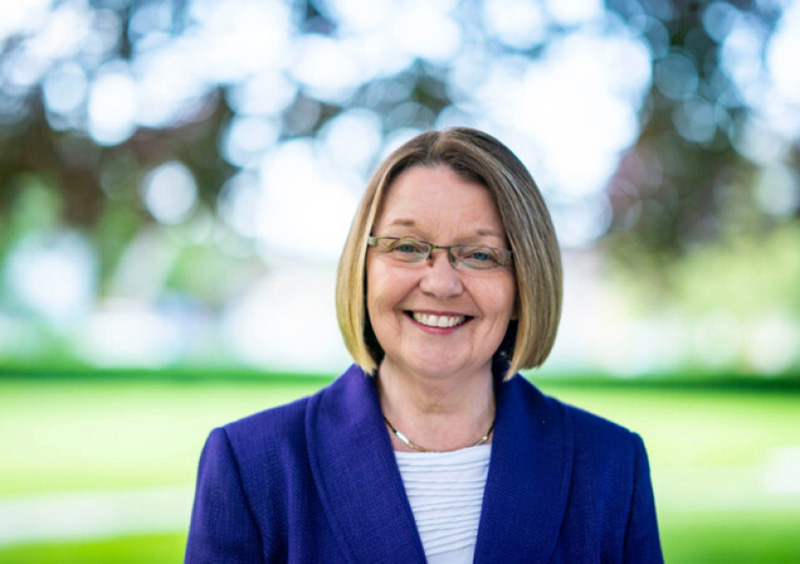
During the 2014 commission, she says residents packed meeting halls to have their voices heard.
“I remember the passionate debates, the lineups at microphones, where people in rural British Columbia stepped up and said, ‘It is essential that we protect a degree of representation,’” Bond says. “There’s a sense that if you live north of Hope, that it’s really hard to get the attention that you deserve.”
But, speaking on the day B.C. announced a phased reopening, Bond says she fears pandemic uncertainty could limit the ability for consultation, particularly in areas without adequate internet access.
She added that while Bill 7 may pass with little fanfare, she believes that will change once the commission gets under way.
“This may not be front and centre at the moment, but as constituents and residents of B.C. gain more awareness of the process, I do think you’re going to see a passionate and emotional response,” Bond says.
The province has until Oct. 24 to confirm the members of the next Electoral Boundaries Commission and the commission must present an initial report to the legislature within 12 months of being appointed.
It will then have six months to hear from the public and consider any further input before a final report is presented to the legislature, the province says. ![]()
Read more: BC Politics


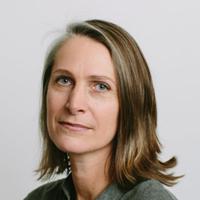

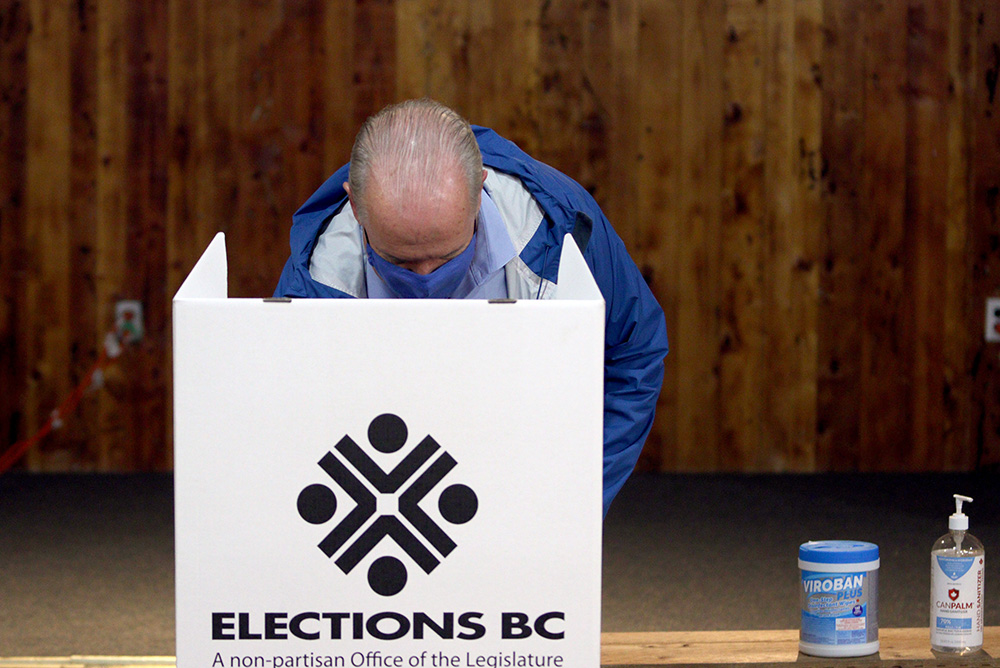


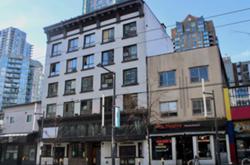








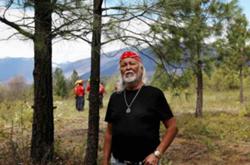
Tyee Commenting Guidelines
Comments that violate guidelines risk being deleted, and violations may result in a temporary or permanent user ban. Maintain the spirit of good conversation to stay in the discussion.
*Please note The Tyee is not a forum for spreading misinformation about COVID-19, denying its existence or minimizing its risk to public health.
Do:
Do not: